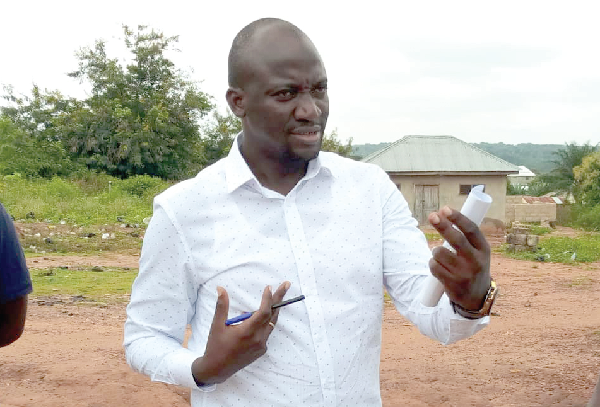
Kintampo residents want petroleum revenue invested in agriculture
The chiefs and people of Kintampo in the Bono East Region have called on the government to inject more of the petroleum revenue into agriculture and agribusiness.
They also appealed to the government to consider using more of the fund to invest heavily in the establishment of factories.
That, according to them, would ensure food security, reduce the country's food importation, create jobs for the teeming unemployed youth and boost the country's economy.
Public forum
They made the call during a public forum organised by the Public Interest and Accountability Committee (PIAC) at Kintampo in the Kintampo Municipality of the region.
A participant, James Adu Opoku, also called on the government to ensure the proper management and utilisation of the oil fund.
The forum brought together farmers, civil society organisations, market women associations, dressmakers, chiefs, transport operators, students, among others.
The forum was to enable PIAC to sensitise the public to how the government had fared in the management of petroleum revenue, solicit their views on how differently the oil revenue could be used and inspect some projects funded by the oil fund.
Some of the inspected projects included the reshaping of the New Longoro-Kintampo-Zambrama road at the cost of GH¢19,984,053.63 and the construction of a three-unit classroom block with ancillary facilities for the Kadelso Basic School at the cost of GH¢78,651.90.
Others were the construction of a three-unit classroom block with ancillary facilities for the Kintampo Model School at the cost of GH¢63,644.40 and the rehabilitation of the Techiman-Kintampo trunk road at the cost of GH¢10,805,374.51.
Funding
Speaking to the Daily Graphic after the forum, the Vice-Chairman of PIAC, Nasir Alfa Mohammed, said the call by the people of Kintampo to increase funding for agriculture and agribusinesses was essential.
He explained that agriculture was the bedrock of the country, adding that it was appropriate for the government to invest in agriculture to diversify the country's economy and create jobs.
Mr Nasir said the committee was in support of the call and would include it in its report to push for its implementation.
Mandate
He said the committee was created with the mandate of monitoring and evaluating the performance of how duty bearers managed the gas and oil fund.
Mr Nasir said the committee was also mandated to provide a platform for the public to have a discussion on the spending priorities and do an independent assessment of how petroleum revenue was managed.
He explained that there were some issues with some of the projects inspected, particularly the Kadelso three-unit classroom block.
"The issues are very minor, which we thought the constructor could have corrected," Mr Nasir stated, explaining that the Kintampo North Municipal Assembly had been contacted to correct the anomaly.
He said the petroleum fund played a crucial role in the development of the country, explaining that 50 per cent of the Free Senior High School policy was funded by the petroleum fund.
Appeal
The Kintampo Municipal Chief Executive (MCE), Isaac Baffoe Ameyaw, appealed to PIAC to speed up work on the New Longoro-Kintampo-Zambrama road.
He also called on the committee to consider the construction of the Kintampo town roads which were in a deplorable state and assist the Kintampo Vocational School with infrastructure to enhance teaching and learning.
Mr Ameyaw said the activities of PIAC over the period had been useful, since it was an independent statutory body mandated to promote transparency and accountability in the management of petroleum revenue in the country.
Recommendations
The Coordinator of PIAC, Isaac Dwamena, called on the Ghana National Petroleum Corporation (GNPC) to double up efforts at recovering loans to the government and its agencies to enable the corporation get enough money to enhance its operations.
He also urged the GNPC to discontinue granting loans and guarantees until significant recoveries of outstanding loans were made.
Mr Dwamena mentioned delay in the release of funds, paltry allocations, the non-involvement of assemblies and stalled projects as some of the key concerns rectified during the committee's project inspections across the country.
